- Region
- Águilas
- Alhama de Murcia
- Jumilla
- Lorca
- Los Alcázares
- Mazarrón
- San Javier
-
ALL AREAS & TOWNS
- AREAS
- SOUTH WEST
- MAR MENOR
- MURCIA CITY & CENTRAL
- NORTH & NORTH WEST
- TOWNS
- Abanilla
- Abarán
- Aguilas
- Alamillo
- Alcantarilla
- Aledo
- Alhama de Murcia
- Archena
- Balsicas
- Blanca
- Bolnuevo
- Bullas
- Cañadas del Romero
- Cabo de Palos
- Calasparra
- Camping Bolnuevo
- Campo De Ricote
- Camposol
- Canada De La Lena
- Caravaca de la Cruz
- Cartagena
- Cehegin
- Ceuti
- Cieza
- Condado de Alhama
- Corvera
- Costa Cálida
- Cuevas De Almanzora
- Cuevas de Reyllo
- El Carmoli
- El Mojon
- El Molino (Puerto Lumbreras)
- El Pareton / Cantareros
- El Raso
- El Valle Golf Resort
- Fortuna
- Fuente Alamo
- Hacienda del Alamo Golf Resort
- Hacienda Riquelme Golf Resort
- Isla Plana
- Islas Menores & Mar de Cristal
- Jumilla
- La Azohia
- La Charca
- La Manga Club
- La Manga del Mar Menor
- La Pinilla
- La Puebla
- La Torre
- La Torre Golf Resort
- La Unión
- Las Palas
- Las Ramblas
- Las Ramblas Golf
- Las Torres de Cotillas
- Leiva
- Librilla
- Lo Pagan
- Lo Santiago
- Lorca
- Lorquí
- Los Alcázares
- Los Balcones
- Los Belones
- Los Canovas
- Los Nietos
- Los Perez (Tallante)
- Los Urrutias
- Los Ventorrillos
- Mar De Cristal
- Mar Menor
- Mar Menor Golf Resort
- Mazarrón
- Mazarrón Country Club
- Molina de Segura
- Moratalla
- Mula
- Murcia City
- Murcia Property
- Pareton
- Peraleja Golf Resort
- Perin
- Pilar de la Horadada
- Pinar de Campoverde
- Pinoso
- Playa Honda
- Playa Honda / Playa Paraíso
- Pliego
- Portmán
- Pozo Estrecho
- Puerto de Mazarrón
- Puerto Lumbreras
- Puntas De Calnegre
- Region of Murcia
- Ricote
- Roda Golf Resort
- Roldan
- Roldan and Lo Ferro
- San Javier
- San Pedro del Pinatar
- Santiago de la Ribera
- Sierra Espuña
- Sucina
- Tallante
- Terrazas de la Torre Golf Resort
- Torre Pacheco
- Totana
- What's On Weekly Bulletin
- Yecla


- EDITIONS:
 Spanish News Today
Spanish News Today
 Alicante Today
Alicante Today
 Andalucia Today
Andalucia Today
article_detail
Spanish News Today Editors Roundup Weekly Bulletin Apr 26

FEATURED ARTICLES: "Summer 2024 in Spain will be much cooler than last year" and "Could Spain be about to head back to the polls?"
It never rains but it pours. That’s literally, as southern Spain is finally going to get some proper rain in the coming days, but also metaphorically as far as Spanish politics is concerned. In case you missed it this is the news that Pedro Sánchez could be about to resign and Spain could go through another round of elections before the summer is out. A summer that is predicted to be much cooler (though by no means cold) than last summer.
Is Spain heading back to the polls?
He came second in the general election last year and only managed to cling onto power because the conservatives couldn’t form a majority government. He has been roundly condemned over his Amnesty Bill which grants immunity to supposed terrorists and traitors as a condition of his power sharing. Detractors have taken him to task for not insisting strongly enough that Hamas release its Israeli hostages. Barely a day goes by when his name isn’t dragged through the mud. But this is the first time Pedro Sánchez, the Prime Minister and the President of the Government of Spain, has said he might resign.
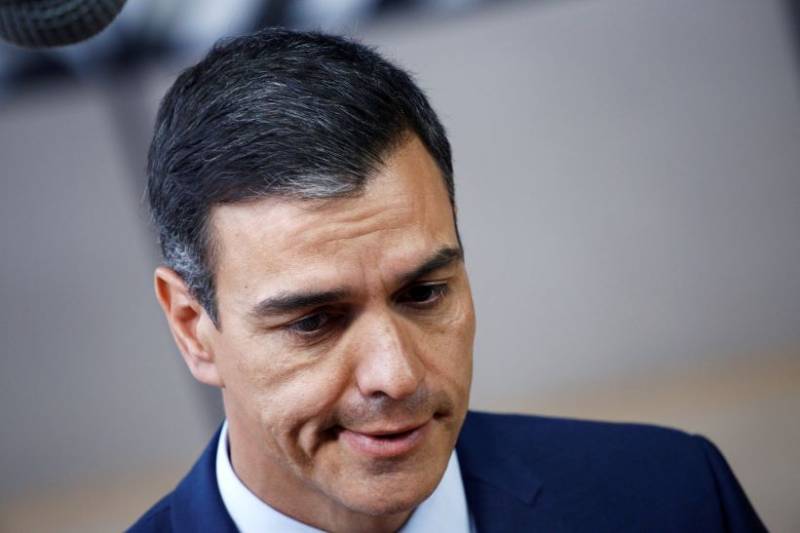
His shock announcement comes after a court case has been brought against his wife, Begoña Gómez, who normally shies away from the limelight, for alleged corruption.
Sánchez has promised to declare on Monday whether he will step down as President or not, and in the meantime has temporarily paused all his public engagements.
Details are hazy, but essentially Gómez is accused of using her influence and position to secure contracts with private companies that received government funding or contracts, notably involving a sponsorship deal with tourism group Globalia, owners of Air Europa, the Spanish airline which was bailed out using government money.
Of course, Sánchez’s supporters, and he himself, have put the case down to a smear campaign by the far right, since it has been brought by anti-corruption group Manos Limpias (Clean Hands), which is spearheaded by a Vox supporter. And he has insisted that both he and Gómez will fight to clear their names. But if he was so sure of her being able to prove her innocence, why would he threaten to resign?
Surely he would do what Keir Starmer did in 2022 when accused of breaching Covid lockdown rules and instead say that he would resign only if he is found guilty, something the UK’s Labour leader eventually didn’t have to do because he was so certain he was innocent.
Then again, it may all legitimately be a baseless witch hunt. Manos Limpias founder Miguel Bernard was himself investigated by the Audiencia Nacional high court in 2018 for extorting money from companies and banks. He was accused of making allegations of corruption against companies and then, in a blatant display of corrupt behaviour, asking them for money to withdraw the charges, for which the court sentenced him to four years in prison. He was later acquitted by the Supreme Court in 2024, but it goes to show the kind of guy we’re dealing with here. Indeed, Manos Limpias has admitted the “possibility” that its allegations against Begoña Gómez are based on ‘fake news’.
The Spanish PM’s headache comes a week after Basque separatists made significant headway in regional elections in Euskadi and just before the start of the election campaign in Catalonia, where independents like the still-in-exile Carles Puigdemont (who stands to gain from the Amnesty Bill) are expected to make big gains too.
As part of his pause on all his official duties, the President did not, as planned, attend the launch of the electoral campaign for his Socialist PSOE party in Catalonia in Barcelona this Thursday.
It will be a tense weekend. If he does come out on Monday and say he’s resigning, he’ll have to dissolve the parliament he finally managed to form just a few months ago. At the earliest, he would be able to do that on May 29. After that, fresh elections would have to be held, which could legally only happen from July 21 onwards, which is uncomfortably close to August, a time when elections are rarely held because so many people are away on holiday.
Cool it
It might not feel like it at the moment as we look on dreary grey skies, but summer really is just around the corner and soon we’ll be longing for the spring chill as the temperatures continue to soar. Or will we? Well, according to the experts, summer 2024 is actually going to be blessedly cooler than last year, thanks in large part to climate change.
Although Spain has consistently broken heat records throughout January, February and March, Copernicus, the European Commission’s Earth Observation Service has been examining the data and has come to the conclusion that the usually sweltering June, July and August won’t be any warmer than the European average.
Now, this has to be taken in context, since across Europe, 2023 was the second hottest year of all time.
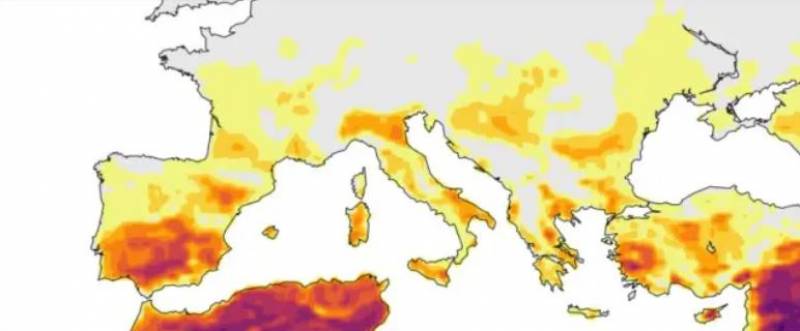
Summer 2023
But the reason why the forecasts point to a milder summer in 2024 has to do with the fact that Europe will also notice the withdrawal of the phenomenon known as El Niño, again caused by climate change and characterised by waves of heat on land and sea, in droughts and floods. In the coming months, El Niño should be replaced worldwide by its antithesis, La Niña, which has more cooling effects on the environment.
Aside from being good news for our usually overworked air conditioning systems and, in turn, our electricity bills, a more temperate forecast has all kinds of benefits. The heat extremes of recent years have really taken their toll, since 23 of the 30 largest heat waves in Europe have occurred since 2000.
All of this caused losses estimated at 13.4 billion euros, of which 81% was attributed to floods that affected some 1.6 million people. Last year, 63 people died in Europe due to storms, 44 due to floods and 44 due to fires.
Heatwaves are not just an uncomfortable nuisance – they also cost lives.
Homes under the summer
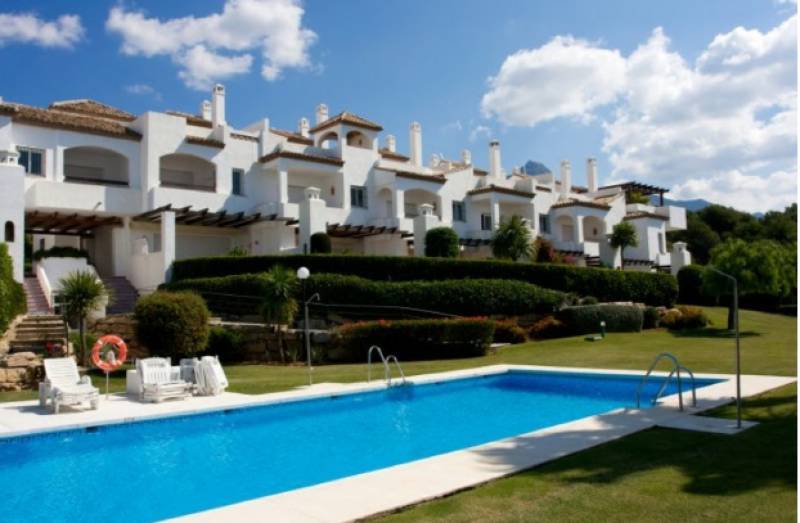
The summer is also a time when foreign interest in Spanish real estate really ramps up, and those in the know believe that 2024 will be no exception. But what can we expect from the property market in the coming months? Is it a good time to buy, or is the situation in favour of sellers?
The answer, perhaps unhelpfully, is both. Following the trend of recent years, demand from abroad for second homes in the sun remains very high, but available housing stock, particularly in touristy areas, is very, very low.
As a result, Toni Exposito, Operations and Development Director at Keller Williams, sees house prices being set this summer at two very different speeds. On the one hand, property costs should remain steady or even rise in desirable city hubs and the more touristy coastal spots, while prices are predicted to drop in areas “where unemployment, mortgage rates and inflation have had a greater impact”.
So depending on where the property is located, the summer season could be a good time to buy or sell.
A key factor in these predictions is increased demand from foreign buyers. Home purchases from abroad are expected to rise again, “surpassing last year’s quotas in the second quarter, which is usually a very good period for British, German and French buyers on the coast”.
Murcia
The citrus fruit, that is. There’s a surplus of them this year, so much so that whole boxes of them are being left for people to take, if they want, from community centres and the like, absolutely free of charge. Across Spain as a whole, around 400,000 million kilos of lemons will go unharvested and, though they were grown specifically for the purpose, will not be taken to market. Three quarters of those are in Murcia, being, as it is, the ‘garden of Europe’. But why the sudden surge in vitamin C this year?
Most of the surfeit lemons belong to small- and medium-sized farmers who, according to the agricultural associations representing them, are being priced out of the market by larger industrial growers. The production cost for small farmsteads to grow lemons is about 22 to 25 cents per kilo, while the large multinationals can get away with 8 cents per kilo due to their large-scale model.
The upshot of these extra lemons being unsold (Not all of them are thrown away – some are used for animal feed and others go to food banks) is that all that time, effort and water it took to grow them has been wasted. For those 400,000 million kilos of lemons going to waste in the entire country, it took an estimated 136 cubic hectometres of water to grow. To put that into context, it’s around half of the water supply currently held in Murcia reservoirs, which is about 278hm3, and as we’ve come to appreciate, water is a precious commodity that we cannot afford to be wasting.
The Union of Small Farmers has asked the government to step in and regulate.
Also sticking their noses in this week are the folk from the Franz Weber Foundation (FFW), a Swiss organisation that carries out projects – mainly in Switzerland but also in other parts of the world – to protect nature and animals. They have come up with a proposal and a financing scheme for how the Ayuntamiento de Murcia can stop torturing animals for fun and change the bullring in the region’s capital into a ‘library and multi-purpose socio-cultural hub’.

The Plaza de Toros in Murcia city is still sometimes used for bullfights, but is also, to some extent, already a ‘multi-purpose socio-cultural hub’. Look no further than Take That and Sir Tom Jones on the bill to sing there this summer! But the FFW is recommending they go one step further and, using 1% of the cultural fund allocated annually by Spain’s Ministry of Culture, convert the historic bullring into a place where people could come to read and borrow books, watch (more) concerts, see plays and enjoy sporting competitions.
It’s worth pointing out that, for now, this is merely a suggestion, and it is, of course, up to the City Council in Murcia whether they want to accept or not.
Getting to and from Murcia continues to get that little bit easier and cheaper thanks to a new offer from train company Iryo, coinciding with the resumption of its high-speed train services between Alicante and Madrid at the beginning of June, to sell combined train and bus tickets that let passengers easily connect between Alicante city and onward destinations like Benidorm, Elche, Santa Pola, Murcia city and Cartagena.
To Camposol now, where another private company is making changes (welcome or otherwise) to the local land. Clearance work has commenced on a series of undeveloped plots in Camposol, initiated by a civil engineering company from Torrevieja. Contrary to speculation, Mazarrón Council has denied all involvement, stating the plots are private property.
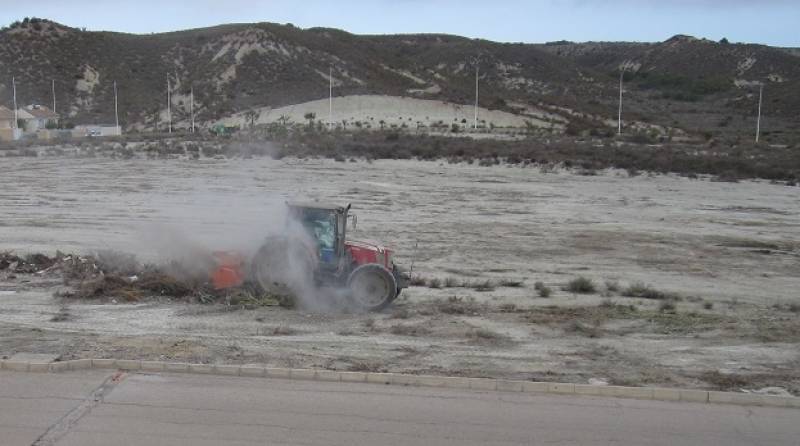
Though some of the plots were the site of resident installations which didn’t have permission to be there, such as pétanque courts and barbecues, the machinery operators agreed to delay clearing these areas to allow residents time to remove their belongings.
While the intentions behind the clearance remain uncertain, potential plans to apply for planning permits could transform these plots into valuable assets. This actually aligns with Mazarrón Council’s efforts to manage Camposol’s development, which we have written about before, and to resume new building permits in order to enhance the urbanisation’s infrastructure and attract investment.
Meanwhile, the forthcoming private Hospital del Guadalentín on Camposol is moving steadily ahead with its plans to open before the summer, actively recruiting professionals to fill 150 positions and positioning itself as a pioneer in advanced medical care in the region. As part of this commitment, they will have a Da Vinci robotic surgery system, a first in private healthcare in the Region of Murcia. This cutting-edge technology promises precise surgical procedures with minimal invasiveness, which is especially good for specialties like urology and gynaecology. The hospital aims to lead surgical advancements, offering patients access to state-of-the-art treatment previously limited to public hospitals.
To finish off our Camposol news, an update on a story we brought you about a month ago of a Belgian resident of Camposol by the name of Andrew who was accused of paedophilia. The 72-year-old has been sentenced to two and a half years in prison for the corruption of minors, following the discovery of child pornography on his computer. It would have been eight and a half but the man pleaded guilty. His punishment could even be downgraded further to a two-and-a-half-year suspended sentence due to alleged health issues.
Finally, the Region of Murcia has activated a forest fire alert due to the prolonged dry conditions. Yes, it’s due to rain a bit more soon, but we’re still coming up to forest fire season, meaning it is time for the Ministry for the Environment to initiate its surveillance network, deploying personnel to high altitude points to detect and respond to wildfires promptly. With 20 surveillance points manned until October, the Region aims to mitigate the risk of wildfires, particularly those sparked by lightning strikes.
See our EVENTS DIARY for events and activities coming up soon in the Region of Murcia:
Spain
Anyone struggling to brush up on their Spanish will know that learning a new language is an exciting process, but it can also be mightily frustrating. But you might be able to take heart in the fact that you’re certainly not alone, and there are several words and pronunciations in the English language that Spanish learners have real trouble with.
Strangely enough, what causes the problems for Spaniards isn’t English’s complicated (and often nonsensical) grammar rules, but everyday words like ‘hello’, ‘house’, ‘happy’ and ironically enough, ‘Spanish’.
This is according to a new study conducted by the British Council, which found that Spanish speakers often add an ‘e’ prefix to many common words because in their language, sp-consonant combinations don’t exist. This leads native speakers to say ‘Espanish’ rather than ‘Spanish’, for instance.
Similarly, Spanish speakers struggle with English expressions commencing with the written ‘h’, typically substituting Spanish ‘j’ equivalents.
Other complications arise because of the sheer volume of silent letters in English – think of ‘walk’, ‘talk’, ‘would’ and ‘could’, where the letter ‘l’ isn’t heard.
Another sticky point are vowels. In Spanish there are five vowel sounds compared to approximately 20 in English. This leads Spanish speakers to opt for the Spanish vowel that most closely resembles that of English. It’s not always a problem, but some words like ship, live, hit, whose ‘i’ is short, could be confused with other words that are pronounced with a long ‘i’, like sheep, leave and heat. ‘Sheet’ gives another example that could land people in hot water.
So next time you’re in class and confuse your ‘El’ for your ‘La’, spare a thought for those poor Spanish learners who have the oh-so-confusing English language to contend with!
If you’re any bit squeamish then you might want to skip ahead, because this next story is not for the faint hearted. A truly horrifying incident occurred at Palma de Mallorca Airport this week, when a staff member ordered a cup of coffee from a vending machine and ended up with a mouth full of insects.
That’s right – the drink was swimming with unidentified bugs and the airport worker had taken two good sips of the coffee before she noticed. Quite aside from being appalled, the young woman immediately began feeling ill and her eyes and lips swelled up, so an ambulance had to be called.
On the way to hospital, the unfortunate woman went into anaphylactic shock and had to be administered adrenaline, and she was rushed to the Intensive Care Unit (ICU). She’s understood to be recovering well but unsurprisingly, she’s indicated that she will be taking legal action once she’s discharged.
Meanwhile, Palma de Mallorca Airport has opened an investigation and the company responsible for the vending machines is busy checking every piece of equipment for any more unwanted visitors.
There are red faces all round in the Spanish justice department this week after the authorities let a Dutch Mafia boss, who was only arrested in Marbella a couple of months ago, disappear without a trace.
Karim Bouyakhrichan, one of the most dangerous leaders of the Dutch Mocro Mafia, was apprehended back in January but after spending a few weeks behind bars, the judge surprised everybody by granting the kingpin bail, despite the obvious flight risk. He did have to surrender his passport and promise to check in regularly with the courts, but this didn’t stop him from vanishing without a trace.

His disappearance has caused enormous discomfort in both the Spanish security forces and the Dutch authorities, who were already highly critical of Spain’s decision to release the drug lord on bail.
Bouyakhrichan’s original arrest in January brought a huge sense of relief to the Dutch royal family. Heir to the throne of the Netherlands, Princess Amalia, essentially had to put her life on hold and hide away after receiving several death threats from the Mocro Mafia.
Now, following Bouyakhrichan’s disappearance, fresh concern has surfaced among Dutch authorities, who are also demanding answers from the Provincial Court of Málaga and the National Court.
Alicante
 These cynical days, it’s nice to know there are still some things that can surprise us, and that’s certainly the case for a couple of Local Police officers in Alicante’s Guardamar del Segura. During a routine patrol this week, they were gobsmacked when they spotted an electric scooter towing a child’s buggy, complete with baby on board plus a load of shopping.
These cynical days, it’s nice to know there are still some things that can surprise us, and that’s certainly the case for a couple of Local Police officers in Alicante’s Guardamar del Segura. During a routine patrol this week, they were gobsmacked when they spotted an electric scooter towing a child’s buggy, complete with baby on board plus a load of shopping.The man in question had somehow managed to weld the stroller on to the back of his electric scooter and was pulling the toddler along without a care in the world. Now, it shouldn’t really need to be said, but this type of modification to a personal mobility vehicle is not only extremely highly dangerous, but it’s also totally illegal.
Following this unbelievable incident, the Guardamar Local Police took the opportunity to remind all road users that “vehicles cannot undergo reforms that alter their nature, and an electric scooter cannot have more than two wheels nor be used by more than one person.”
For the more conventional road users, the green light has finally been given to the much-needed expansion of the 17 kilometre stretch of the Mediterranean Highway (A-7) connecting Crevillente with the Orihuela/Benferri link near Alicante.
An extra lane is going to be added in each direction, which should be a huge help to traffic flow, and all of the hard shoulders will be widened, as will the 15 flyovers and 13 overhead crossings.
Additionally, improvements will extend to the entrance ramp of Orihuela on the CV-870, continuing previous works completed between Elche and Crevillente in 2008. Upgrades will cover several sections, namely Crevillente-Catral, Albatera-San Isidro, Granja de Rocamora-Cox, N-340 Redován and Orihuela-Benferri, transitioning them into diamond-shaped connections equipped with roundabouts.
Known as the ‘narco of Wikipedia’ thanks to his extensive criminal career spanning more than three decades, British man Brian Colin Charrington has been linked to a huge drugs bust in Alicante this week. The notorious criminal is thought to be the mastermind behind a seizure of 1,165 kilos of cocaine discovered by the National Police on a sailboat travelling from Suriname to Valencia.
In an operation conducted in March by the Police and Customs Surveillance, 31 individuals were arrested, including a former police officer, and 23 searches were executed in the Marina Baixa area, including Benidorm. Although Charrington and his partner were among those arrested, they have since been released and are not currently under investigation.
Authorities describe the Charrington network as the largest criminal organisation operating in the Spanish Levante region.
When authorities arrived to apprehend Charrington at his villa in Altea, close to Benidorm, he reportedly barricaded himself inside and threatened officers with a shotgun. Later, he claimed he thought they were robbers impersonating police agents trying to break into his home.
When the authorities finally gained access to the property, assets worth approximately ten million euros were seized, including three boats, 44 vehicles, 40 luxury watches, 60 pieces of artwork, 54 mobile phones, a virtual cryptocurrency wallet, three firearms, the deeds to 44 properties and 74 frozen bank accounts.
The memorial statue of Welshman Captain Archibald Dickson, which has stood proudly in Alicante Port for more than a decade, has once again been vandalised by suspected far-right activists.
This time, the inscription that honours the historical events that took place at the end of the Spanish Civil War have been scribbled out with black spray paint and, most disturbingly of all, a swastika has been drawn below the bust of the war hero.
Ya tenemos la primera visita no deseada al memorial del puerto.
— Manolo Copé (@manocope) April 21, 2024
Ellos mismos se han calificado. pic.twitter.com/7qzAvIVeRf
In March 1939, Captain Dickson set sail for Spain aboard the SS Stanbrook to collect a shipment of fruit but when he arrived in the Costa Blanca port, he discovered hordes of terrified refugees desperate to escape Franco’s forces. Without a thought, the Welshman dumped his cargo and squeezed 2,638 people onto his ship and carried them to safety.
Sadly, this isn’t the first time the memorial has suffered an attack from the extreme right since it was first erected in 2014 on the 75th anniversary of the legendary rescue.
In May 2017, the inscription plaque was ripped from the statue, just one day after Alicante announced it would be twinned with Captain Dickson’s home town of Cardiff. Two years later, during preparations to commemorate the 80th anniversary, the bust was covered with graffiti of the Fascist Falange symbol and a Spanish flag.
Andalucía
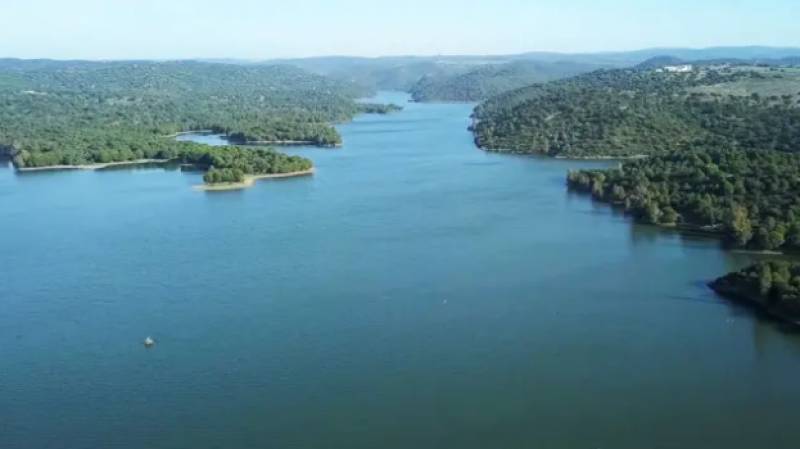 The latest in the ongoing saga of the Andalusian drought situation now, and finally there’s some good news! The province of Sevilla – which has been parched by drought for around 5 years now and has been under a state of emergency, a state of alert (which was put in place this February) and a state of short-term shortage (as of this month) – has had all its water restrictions lifted thanks to the blessed rains that have doused the area of late.
The latest in the ongoing saga of the Andalusian drought situation now, and finally there’s some good news! The province of Sevilla – which has been parched by drought for around 5 years now and has been under a state of emergency, a state of alert (which was put in place this February) and a state of short-term shortage (as of this month) – has had all its water restrictions lifted thanks to the blessed rains that have doused the area of late.With the removal of these limitations, private households will be allowed to fill their swimming pools this summer and any remaining bans on farmers being able to water their crops will be scrapped.
Sevilla’s reservoirs now stand at 67% of their capacity, putting the province above the pre-alert threshold of 324hm3 of water and providing enough to last for the rest of the year, according to Emasesa, the public water company which manages the province’s supply. Not only that, but rain is forecast for about the next week solid, which should also help to secure vital reserves.
Consumption levels of water have dropped to an average of 105 litres per person per day, the lowest ever recorded by Emasesa, who have underscored that it is necessary “to continue considering water as a scarce resource and use it in a responsible manner, avoiding excessive expenses and consumption”.
In the small seaside town of Roquetas de Mar in the province of Almería, a horrendous discovery was made recently when the headless body of a man was found lying in a pool of blood in the middle of the street.
The poor witness who found the body and alerted police at before 6 o’clock in the morning last Sunday told them of a person who was ‘bleeding to death’ in the street, but who, when police and an ambulance turned up, was seen to have no head.
No further details of the identity of the male or of the circumstance surrounding the death have emerged, and a police investigation is currently underway.
In Cádiz, a project has just begun to pull up from the seabed a late 17th-century Spanish galleon that is lying at the bottom of the port. This galleon, dubbed Delta I by modern discoverers, was first found in February 2011 when Cádiz port authorities wanted to undertake some improvement work to the busy cruise and cargo port, and it was thought to have lain there untouched for more than 300 years like something out of Pirates of the Caribbean.
In 2012, the private company Divership Servicios Subacuaticos SL, which specialises in underwater operations, moved the Delta I to a more sheltered part of the port’s seabed and encased it so it would be better protected. But now, this same company has been tasked with dredging up the antique warship, a project that is slated to take around six months.
In the intervening 12 years since the Delta I was moved, Divership have carried out hundreds of dives and have extracted several items of archaeological interest, including 27 artillery cannons and 5 anchors. They have also carried out similar projects on twin ships, the Delta II and Delta III.
Now the time has come to dismantle the Delta I piece by piece and reassemble it in a corner of the port put aside for that purpose so it can be studied by the Centre for Underwater Archaeology (CAS) to find out more about the marine past of this busy port city, which lies on the crux between the Atlantic Ocean and the Mediterranean Sea and has a long history of exploration, trade and piracy.
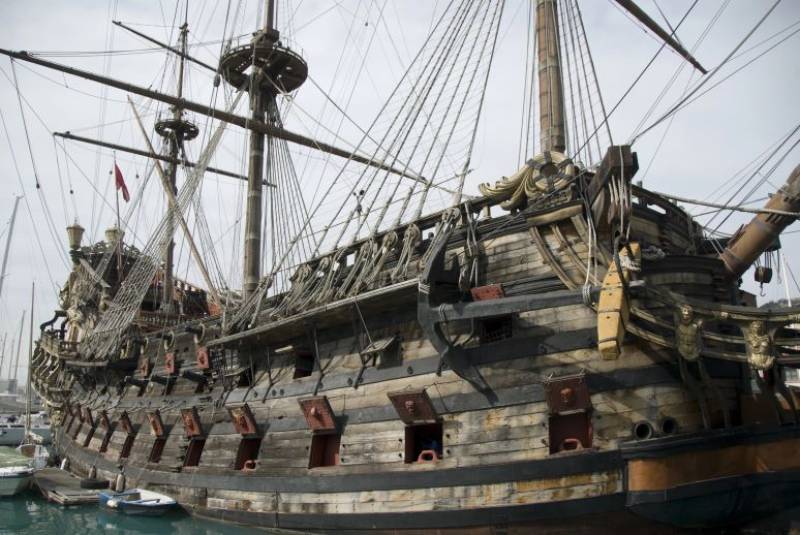
You may have missed…
- Ryanair cancels hundreds of UK and Spanish flights due to French air traffic control strike.
Serious disruption for Ryanair passengers this Thursday as the airline was forced to cancel more than 300 flights due to new air traffic control strikes in France. - UK hotel chain Travelodge to open in Murcia.
UK hotel brand Travelodge has just announced the purchase of the Campanile hotel in Murcia, along with five other properties across Spain. - British family brutally beaten by drug-growing squatters in their Ibiza home.
A British couple’s vacation to their holiday home in Ibiza took a horrifying turn when they were ambushed by armed squatters running a cannabis farm inside the property. The assailants attacked the couple with baseball bats, chains and what police believe to be a shotgun, stealing their luggage and demanding a ransom of 2,000 euros for its safe return. - Third earthquake in three days in Murcia and Alicante area.
An earthquake measuring 3.0 on the Richter scale occurred in Molina de Segura this Thursday afternoon, and was felt as far away as Orihuela. It is the third earthquake to be registered in the area in as many days, though none of them have been reported to cause any damage. - Cartagena invests almost 75K in accessible beach equipment.
In the run-up to summer, Cartagena has turned its attention to updating and improving all of the accessible equipment designed for reduced mobility bathers on its beaches.
That’s all for this week. By the way, don’t forget that Wednesday of next week, May 1, is a holiday in all of Spain for International Workers’ Day, when nobody works. And May 2 is a holiday in Madrid, too, for anyone there.
See you next week!
Find more information by AREA, TOWN or URBANISATION .....
Cabo de Palos
Cartagena
El Carmoli
Islas Menores and Mar de Cristal
La Manga Club
La Manga del Mar Menor
La Puebla
La Torre Golf Resort
La Union
Los Alcazares
Los Belones
Los Nietos
Los Urrutias
Mar Menor Golf Resort
Pilar de la Horadada
Playa Honda / Playa Paraiso
Portman
Roldan and Lo Ferro
San Javier
San Pedro del Pinatar
Santa Rosalia Lake and Life resort
Terrazas de la Torre Golf Resort
Torre Pacheco
Cartagena
El Carmoli
Islas Menores and Mar de Cristal
La Manga Club
La Manga del Mar Menor
La Puebla
La Torre Golf Resort
La Union
Los Alcazares
Los Belones
Los Nietos
Los Urrutias
Mar Menor Golf Resort
Pilar de la Horadada
Playa Honda / Playa Paraiso
Portman
Roldan and Lo Ferro
San Javier
San Pedro del Pinatar
Santa Rosalia Lake and Life resort
Terrazas de la Torre Golf Resort
Torre Pacheco
Aguilas
Aledo
Alhama de Murcia
Bolnuevo
Camposol
Condado de Alhama
Fuente Alamo
Hacienda del Alamo Golf Resort
Lorca
Mazarron
Puerto de Mazarron
Puerto Lumbreras
Sierra Espuna
Totana
Aledo
Alhama de Murcia
Bolnuevo
Camposol
Condado de Alhama
Fuente Alamo
Hacienda del Alamo Golf Resort
Lorca
Mazarron
Puerto de Mazarron
Puerto Lumbreras
Sierra Espuna
Totana
Abanilla
Abaran
Alcantarilla
Archena
Blanca
Corvera
El Valle Golf Resort
Hacienda Riquelme Golf Resort
Lorqui
Molina de Segura
Mosa Trajectum
Murcia City
Peraleja Golf Resort
Ricote
Sucina
Abaran
Alcantarilla
Archena
Blanca
Corvera
El Valle Golf Resort
Hacienda Riquelme Golf Resort
Lorqui
Molina de Segura
Mosa Trajectum
Murcia City
Peraleja Golf Resort
Ricote
Sucina
Urbanisations
CamposolCondado de Alhama
El Valle Golf Resort
Hacienda del Alamo Golf Resort
Hacienda Riquelme Golf Resort
Islas Menores and Mar de Cristal
La Manga Club
La Torre Golf Resort
Mar Menor Golf Resort
Mazarron Country Club
Mosa Trajectum
Peraleja Golf Resort
Santa Rosalia Lake and Life resort
Terrazas de la Torre Golf Resort
La Zenia
Lomas de Cabo Roig

Important Topics:
CAMPOSOL TODAY Whats OnCartagena SpainCoronavirusCorvera Airport MurciaMurcia Gota Fria 2019Murcia property news generic threadWeekly Bulletin
CAMPOSOL TODAY Whats OnCartagena SpainCoronavirusCorvera Airport MurciaMurcia Gota Fria 2019Murcia property news generic threadWeekly Bulletin
Contact Murcia Today: Editorial 000 000 000 /
Office 000 000 000















